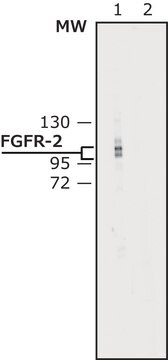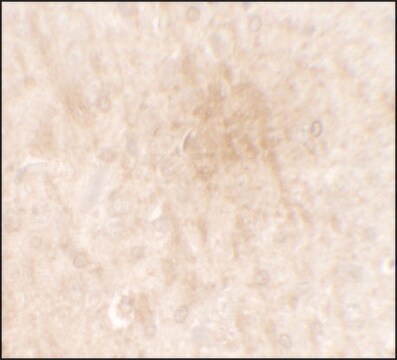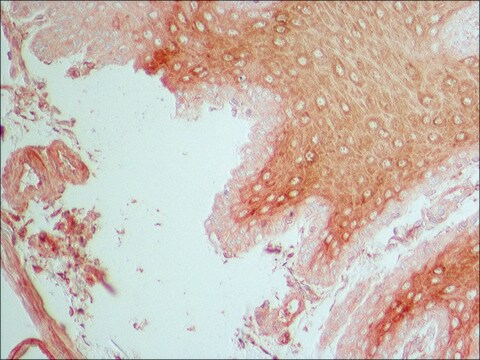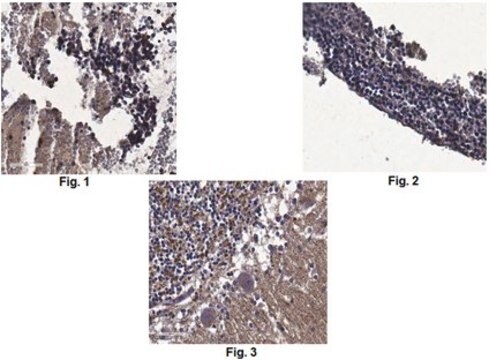F3922
Anti-Fibroblast Growth Factor Receptor-3, Extracellular antibody produced in rabbit
affinity isolated antibody, buffered aqueous solution
Sinônimo(s):
Anti-FGFR-3
About This Item
Produtos recomendados
fonte biológica
rabbit
Nível de qualidade
conjugado
unconjugated
forma do anticorpo
affinity isolated antibody
tipo de produto de anticorpo
primary antibodies
clone
polyclonal
Formulário
buffered aqueous solution
peso molecular
antigen ~120 kDa
reatividade de espécies
human
técnica(s)
immunohistochemistry (formalin-fixed, paraffin-embedded sections): 1:1,000 using protease-digested, human and animal tissue sections
western blot: 1:500 using extract of FGFR-3 transfected cells
nº de adesão UniProt
Condições de expedição
dry ice
temperatura de armazenamento
−20°C
modificação pós-traducional do alvo
unmodified
Informações sobre genes
human ... FGFR3(2261)
Descrição geral
Imunogênio
Aplicação
- immunoblotting
- immunohistochemistry
- immunoprecipitation
Ações bioquímicas/fisiológicas
forma física
Nota de preparo
Exoneração de responsabilidade
Não está encontrando o produto certo?
Experimente o nosso Ferramenta de seleção de produtos.
Código de classe de armazenamento
10 - Combustible liquids
Classe de risco de água (WGK)
nwg
Ponto de fulgor (°F)
Not applicable
Ponto de fulgor (°C)
Not applicable
Escolha uma das versões mais recentes:
Já possui este produto?
Encontre a documentação dos produtos que você adquiriu recentemente na biblioteca de documentos.
Nossa equipe de cientistas tem experiência em todas as áreas de pesquisa, incluindo Life Sciences, ciência de materiais, síntese química, cromatografia, química analítica e muitas outras.
Entre em contato com a assistência técnica





